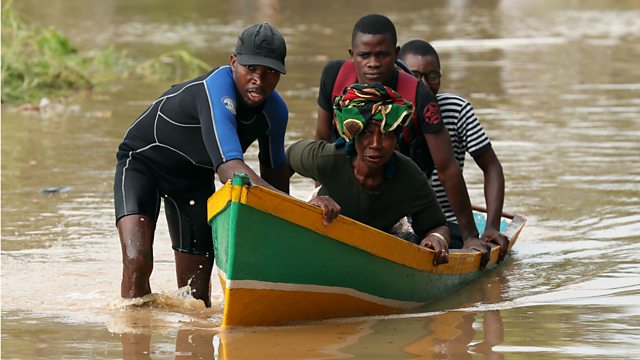
What is behind the Indian Ocean Cyclones?
Why have three cyclones developed in the Indian Ocean in quick succession? We test a scientific hypothesis that claims cooking made us the species we are today
First there was cyclone Idai, then cyclone Kenneth and now cyclone Fani. As we go to air Fani is still developing, but the earlier two were unprecedented, occurring in a manner rarely if ever seen before. What is behind these extreme events? We look at the current state of weather patterns in the region and the influence of climate change.
And from Tibet a jawbone from an ancient giant provides new insight into the development of humanity.
Astronomers join forces to search for evidence of a black hole swallowing a neutron star, and why atmospheric pollution might have reduced the severity of past droughts.
Many of us enjoy cooking – but when did we switch from eating our food raw, to heating it? Listener Logan enjoys his beef burgers rare, but wants to know why he still feels compelled to grill them? Presenter Anand Jagatia travels to a remote South African cave where our ancestors first used fire at least a million years ago, which one man says could help prove when our species started cooking.
(Image: A man ferries a residents through a flooded road in the aftermath of Cyclone Kenneth in Pemba. Credit: Reuters)
Last on
More episodes
Previous
Broadcasts
- Sun 5 May 2019 14:06GMT���˿��� World Service Americas and the Caribbean
- Sun 5 May 2019 15:06GMT���˿��� World Service News Internet
Podcast
-
![]()
Unexpected Elements
The news you know, the science you don't

